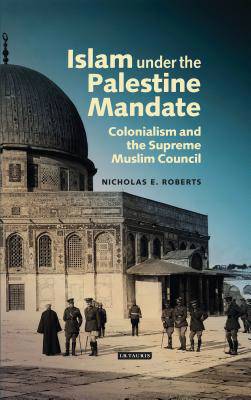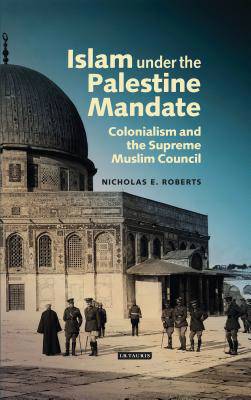
Je cadeautjes zeker op tijd in huis hebben voor de feestdagen? Kom langs in onze winkels en vind het perfecte geschenk!
- Afhalen na 1 uur in een winkel met voorraad
- Gratis thuislevering in België vanaf € 30
- Ruim aanbod met 7 miljoen producten
Je cadeautjes zeker op tijd in huis hebben voor de feestdagen? Kom langs in onze winkels en vind het perfecte geschenk!
- Afhalen na 1 uur in een winkel met voorraad
- Gratis thuislevering in België vanaf € 30
- Ruim aanbod met 7 miljoen producten
Zoeken
€ 271,45
+ 542 punten
Omschrijving
Concerns about the place of Islam in Palestinian politics are familiar to those studying the history of the modern Middle East. A significant but often misunderstood part of this history is the rise of Islamic opposition to the British in Mandate Palestine during the 1920s and 1930s. Across the empire, imperial officials wrestled with the question of how to rule over a Muslim-majority countries and came to see traditional Islamic institutions as essential for maintaining order. Islam under the Palestine Mandate tells the story of the search for a viable Islamic institution in Palestine and the subsequent invention of the Supreme Muslim Council. As a body with political recognition, institutional autonomy and financial power, the council was designed to be a counterweight to the growing popularity of nationalism among Palestinians. However, rather than extinguishing the revolutionary capacity of the colonized, it would become a significant opponent of British rule under its highly controversial president, the Grand Mufti of Jerusalem, Hajj Amin al-Husayni.
Making extensive use of primary sources from British and Israeli archives, this book offers an innovative account of the Supreme Muslim Council's place within a colonial project that aimed to control Palestinian religion and politics. Roberts argues against the standard view that the council's creation was an act of appeasement towards Muslim opinion, showing how British actions were guided by techniques of imperial administration used elsewhere in the empire.
Making extensive use of primary sources from British and Israeli archives, this book offers an innovative account of the Supreme Muslim Council's place within a colonial project that aimed to control Palestinian religion and politics. Roberts argues against the standard view that the council's creation was an act of appeasement towards Muslim opinion, showing how British actions were guided by techniques of imperial administration used elsewhere in the empire.
Specificaties
Betrokkenen
- Auteur(s):
- Uitgeverij:
Inhoud
- Aantal bladzijden:
- 256
- Taal:
- Engels
- Reeks:
- Reeksnummer:
- nr. 57
Eigenschappen
- Productcode (EAN):
- 9781784531355
- Verschijningsdatum:
- 30/01/2017
- Uitvoering:
- Hardcover
- Formaat:
- Genaaid
- Afmetingen:
- 140 mm x 218 mm
- Gewicht:
- 453 g

Alleen bij Standaard Boekhandel
+ 542 punten op je klantenkaart van Standaard Boekhandel
Beoordelingen
We publiceren alleen reviews die voldoen aan de voorwaarden voor reviews. Bekijk onze voorwaarden voor reviews.









